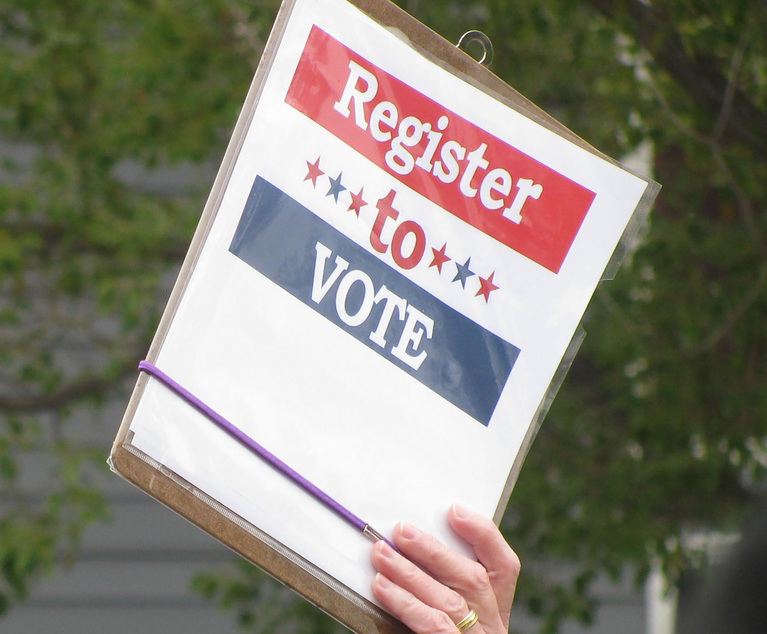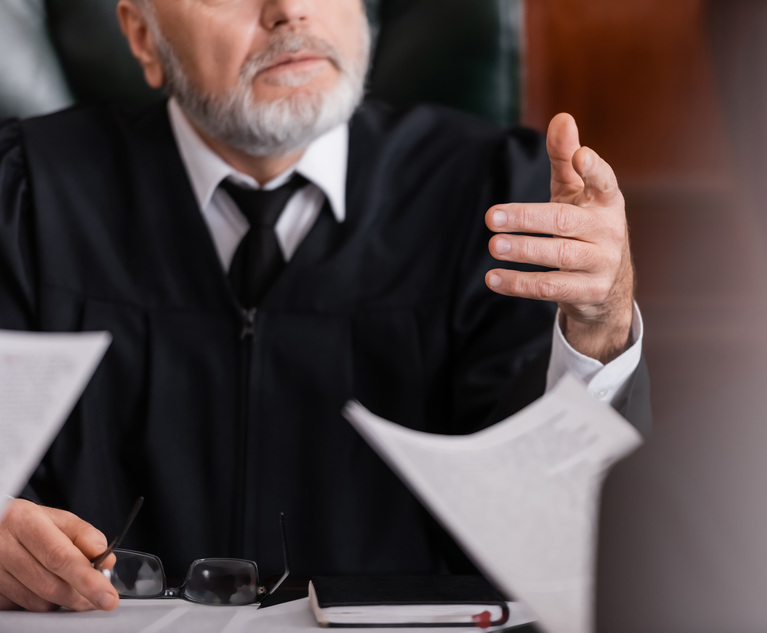Committee On Judicial Ethic

April 17, 2024 | New York Law Journal
Judicial Ethics Opinion 23-103(1) A town justice may not grant permission to the town court clerks to use the town court's courtroom to film for-profit training videos. (2) Whether some other person or entity may grant such permission raises legal and administrative questions we cannot answer.
By Committee on Judicial Ethics
5 minute read

April 16, 2024 | New York Law Journal
Judicial Ethics Opinion 23-102Where a not-for-profit entity engages in some activities clearly permissible for judges as well as some potentially controversial lobbying, advocacy and litigation activities, a judge may not participate in a voter registration drive organized by that entity.
By Committee on Judicial Ethics
7 minute read

April 15, 2024 | New York Law Journal
Judicial Ethics Opinion 23-101May a full-time judge (1) help distribute previously donated books for free to the public at community events, provided the judge does not personally participate in any book drives or other solicitations; and (2) volunteer to read the judge's own published books to children at a not-for profit "mobile bookstore"?
By Committee on Judicial Ethics
2 minute read

April 14, 2024 | New York Law Journal
Judicial Ethics Opinion 23-100May a full-time judge invest in a cannabis company which has an active state license to operate a retail dispensary in New York? May the judge's spouse and other relatives, who are neither judges nor employees of the Unified Court System, invest in, consult for, or be employed by a cannabis company?
By Committee on Judicial Ethics
2 minute read

April 11, 2024 | New York Law Journal
Judicial Ethics Opinion 23-99On these facts, as candidates for a non-judicial office have made the judge's ethical obligations an issue in their election campaign and any attempt by the judge to correct the record will be readily perceived as partisan political activity, the judge must abstain from direct or indirect public comment on the situation.
By Committee on Judicial Ethics
4 minute read

April 10, 2024 | New York Law Journal
Judicial Ethics Opinion 23-98May a judicial association honor an elected official at a non-fund-raising event for their role in increasing diversity in the judiciary, provided the event is not political?
By Committee on Judicial Ethics
2 minute read

April 09, 2024 | New York Law Journal
Judicial Ethics Opinion 23-97Must a part-time town justice, who is also a full-time law clerk to a county court judge in the same county, be insulated in county court from all cases that he/she arraigned in the centralized arraignment part?
By Committee on Judicial Ethics
2 minute read

April 08, 2024 | New York Law Journal
Judicial Ethics Opinion 23-96A judge must insulate their law clerk from all matters in which the law clerk had any personal involvement as an attorney, but need not disqualify, provided the judge believes the judge can be fair and impartial.
By Committee on Judicial Ethics
4 minute read

April 07, 2024 | New York Law Journal
Judicial Ethics Opinion 23-95A judge (1) is disqualified, subject to remittal, in all cases in which a party is represented by an attorney from the small law firm that represents the judge's family's real estate business and (2) may not appoint an attorney from that firm as a guardian ad litem.
By Committee on Judicial Ethics
4 minute read

April 04, 2024 | New York Law Journal
Judicial Ethics Opinion 23-94Whether a judge may ask a defendant questions about court-ordered treatment when the defendant appears before the judge for a status review is a legal issue beyond our jurisdiction. It is, however, ethically permissible for the judge to ask legally permissible questions.
By Committee on Judicial Ethics
2 minute read
Trending Stories
- 1Judge Denies Sean Combs Third Bail Bid, Citing Community Safety
- 2Republican FTC Commissioner: 'The Time for Rulemaking by the Biden-Harris FTC Is Over'
- 3NY Appellate Panel Cites Student's Disciplinary History While Sending Negligence Claim Against School District to Trial
- 4A Meta DIG and Its Nvidia Implications
- 5Deception or Coercion? California Supreme Court Grants Review in Jailhouse Confession Case
More from ALM
- Legal Speak at General Counsel Conference East 2024: Match Group's Katie Dugan & Herrick's Carol Goodman 1 minute read
- Legal Speak at General Counsel Conference East 2024: Eric Wall, Executive VP, Syllo 1 minute read
- Legal Speak at General Counsel Conference East 2024: Virginia Griffith, Director of Business Development at OutsideGC 1 minute read



